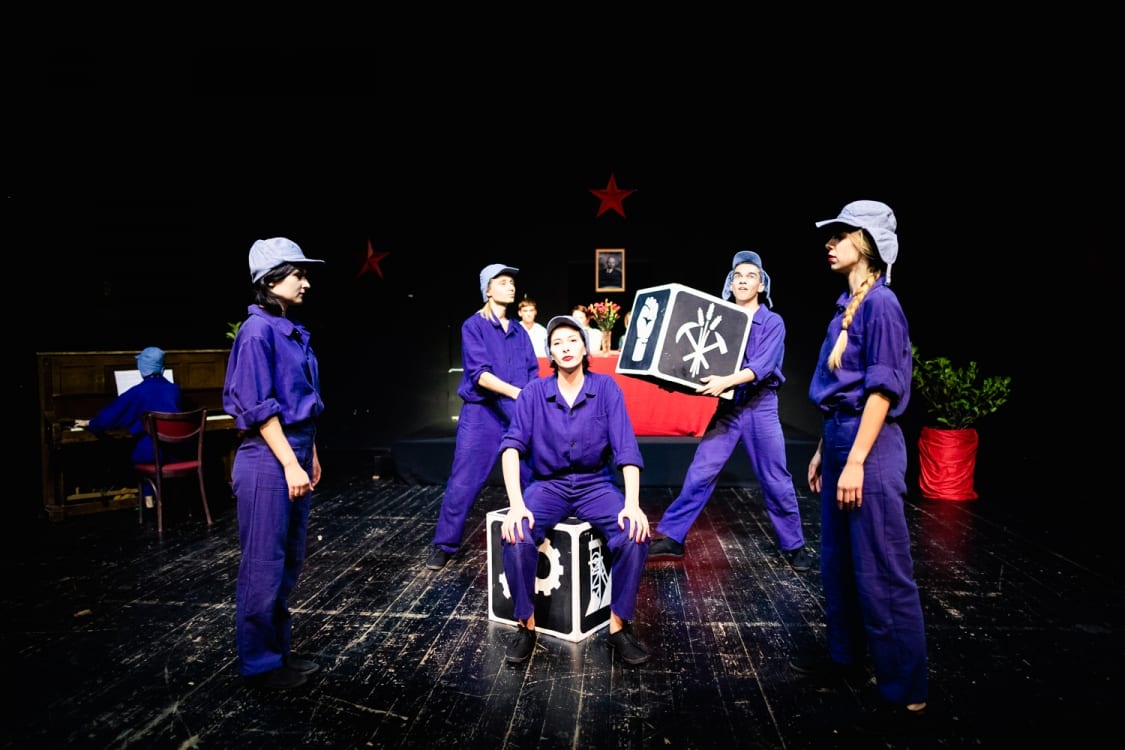Red Wedding is an interactive piece with an interesting cultural past and much to recommend it. It explores through the enactment of a secular wedding ceremony (of the kind thrown and then abandoned in the early Soviet Union) Soviet attitudes to love, family, comradeship and union as well as work, feminism and free love.
The play was in Ukrainian with Polish subtitles, and my lovely Polish translator had to work quite hard to confer the meaning of the many speeches of the value of Sovietism given by the propagandists who would appear at such a ceremony to use the occasion of joy to espouse the virtues of Communism.
The drama is fun and zippy. The audience members dragooned to be the wedding couple were suitably celebrated and left alone and the humour came through enough so that even when I couldn’t understand the language the action kept me involved.
The long propaganda dance sequence was also interestingly pitched. It covered a range of topics in a less po-faced way than the marriage celebrants. And it felt to me that it poked fun at the expected levels of Soviet enthusiasm just enough to expose the complex feelings of the post-Soviet audiences in both Ukraine and Poland.
These were also exposed as the crowd was encouraged to sing along to the Internationale. About half of them did – some – notably younger audience members – enthusiastically. Amusingly for me, I added English as a third language to the singing. It’s a song I have known all my life and it’s a song about a struggle I have some sympathy for even though I have no time for the totalitarians regimes that adopt it as an anthem or their interpretation of that struggle.
Red weddings were conceived in the first optimistic flush of communism. They were considered a collaboration between local artists, politicians and the people. They were intended to replace the ritual of Christian marriage with the ideals of communism celebrated ritualistically. As communism took a more conservative turn away from ideas of free love, they were abandoned and even seen as threatening to the increasingly totalitarian regime.
This play doesn’t tell that story explicitly, but it is a history that many of the audience will know and understand. The optimism of the early communist regime is something that many will balance with their lived knowledge of what came after that and this play explores implicitly the tensions between the two.
Overall, this was a highly enjoyable production which made excellent use of music, choreography and speech to present a snapshot in time, while also challenging the audience’s understanding of their past.

